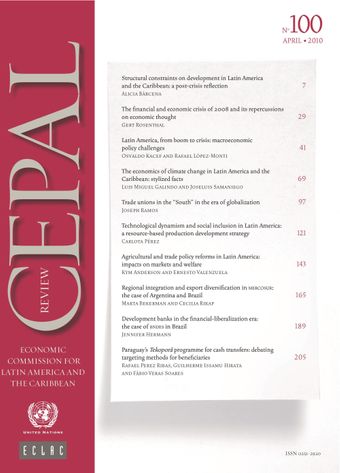-
Regional integration and export diversification in MERCOSUR: The case of Argentina and Brazil
- Source: CEPAL Review, Volume 2010, Issue 100, Apr 2010, p. 165 - 187
- Spanish
-
- 24 Apr 2010
Abstract
This article analyses the effects of Argentina’s trade with its MERCOSUR partners in two key periods: 1997/1998 and 2005/2006 —before and after the crises suffered by the economies of this trade zone. The impact of trade on the regionalization of exports and imports was measured by the Regional Orientation Index, which was used by Yeats in his study of these countries for an earlier time period. Our conclusions show that the results obtained by Yeats are inconsistent with the later reality in Argentina and Brazil, since MERCOSUR enabled them to develop learning processes and grow their trade with countries outside the bloc. This positive impact was mainly felt in Brazil, however, and less in the other partners, particularly Uruguay and Paraguay —owing to the underlying asymmetries between these economies. As a result, the largest MERCOSUR country has been the main beneficiary of integration thus far.





